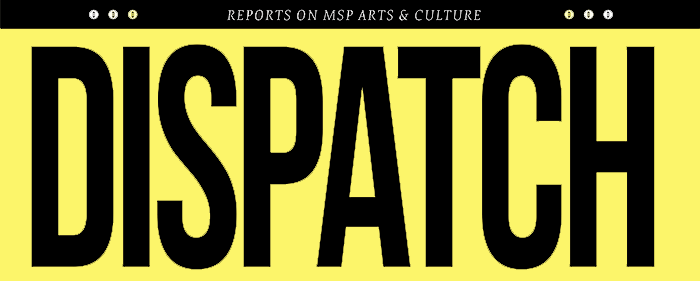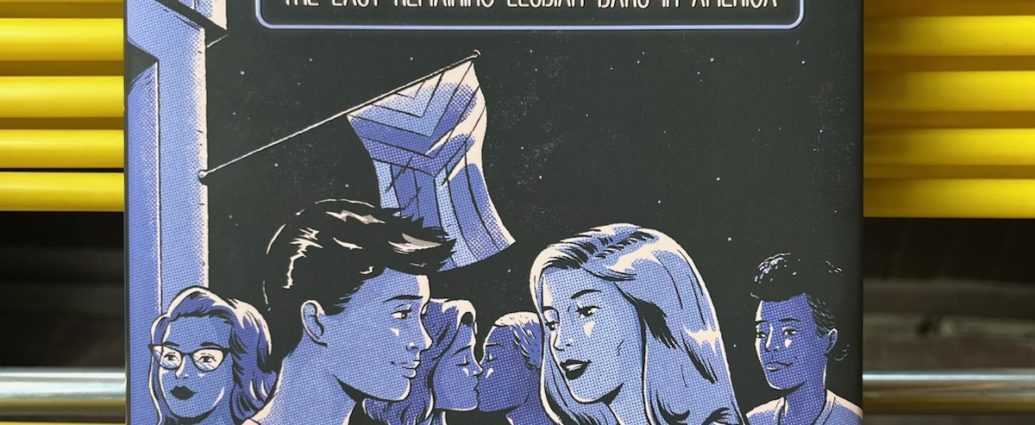Krista Burton’s new book, Moby Dyke, explores: Where are the remaining lesbian bars—and what does it mean when lesbian bars disappear?
WORDS BY KATIE DOHMAN
“Honestly, there is nothing like being a room full of people where you feel safe and completely comfortable to be your authentic self—and those spaces do not exist for an enormous amount of queer people,” says Krista Burton, author of Moby Dyke: An Obsessive Quest to Track Down the Last Remaining Lesbian Bars in America.
She’d been thinking about the decline of lesbian bars for years: In 2017, she wrote an op-ed for The New York Times called “I Want My Lesbian Bars Back.” Burton, who wrote for Rookie Mag and the blog Effing Dykes, says the article “was just me bitching how upset I was that all of these spaces I loved were closing.”
But it wasn’t a petty complaint: In the late 1980s, more than 200 self-identified lesbian bars existed; by 2017, only 20.
Burton, who lives in Northfield with her husband Davin Sokup, who is trans, pitched a bunch of ideas around, and even thought about writing a book about this topic, but she and her agent shelved it for other ideas. Then the pandemic hit. In lockdown, Burton says she longed to be in a packed room with other queer people, with an intensity that “startled” her. “We don’t all understand each other telepathically or have the exact same shared experience, but it’s a wonderful feeling to be in community.”
Then, an editor at Simon and Schuster came calling—he’d seen her piece in the Times, and would she want to write that exact concept book?
Would she like to go to every lesbian bar in America and write about the book she talked about writing about? Yeah, yeah she absolutely would.
Moby Dyke is a love letter, memoir, and travelogue that explores what it means to need lesbian bars in an age of sometimes increasing acceptance and progress—and backlash—and an expansion of the community’s definitions of queer identities. It also explores coming out to her Mormon parents, and her marriage. It frequently involves Burton’s self-deprecatingly narrated laugh-out-loud moments, and she says, is transparently written from a stan’s perspective—one who wants to be very inclusive.
“I tried to make the book as welcoming as possible to people who might not feel sure about their own identity in the queer community,” she says. “For someone who is 20 years into going out in gay life, I tried to make sure that people know that we absolutely recruit, like, ‘Do you want to be queer? Come in!”
As the world tentatively began to reopen with vax card and mask requirements, Burton hit the road, sometimes with husband Sokup in tow. She had a carefully evaluated and organized list of official lesbian bars in hand—it had to self-identify as a lesbian bar or could identify as a queer bar if that was a recent evolution. There “might be bars where young queers hang out,” that would nevertheless not make her cut, by definition.
Bars rolled out welcome mats nationwide, but geographic differences revealed themselves: Most notably, she says, the further south she went, the more the feeling of “stepping into an oasis of acceptance was almost tangible. Strangers were willing to talk to you in ways I didn’t experience in New York or super liberal cities like Denver. They were welcome, but it was an assumption. In the south it was emphatically welcome…in a much bigger contrast with what’s outside the doors. Several of the bars in the south didn’t have windows or they were completely covered. It emphasized that feeling—you’re safe in here, it’s outside you need to worry about.” She took in the gravity and joy of visiting Stonewall. She stood contentedly shoulder-to-shoulder in another bar, rewatching The L Word. (Psst: She says the best bar was The Back Door in Bloomington, Indiana—yes, Indiana—with its outstanding drag show.)
She had moments of wanting to go home, though, too—it was exhausting and bars began to blend together. In Atlanta, she hesitated, jealous of Sokup tucked in bed, watching Thelma & Louise. “I made myself go anyway, and it was one of best nights I had on the trip,” she recalls. “Every night was the night I was supposed to have.”
“I was so tired. And so stressed and so broke,” she says, laughing. “And it was so completely worth it. Looking back now… that was the most fun I ever had. Hands down.”
WHEN YOU GO
Krista Burton Presents Moby Dyke
June 12, 7-8 PM
Moon Palace, 3032 Minnehaha Ave, Mpls,
June 15, 7-8:30 PM
in conversation with Davin Sokup
Content Bookstore, 314 S Division St, Northfield, contentbookstore.com

